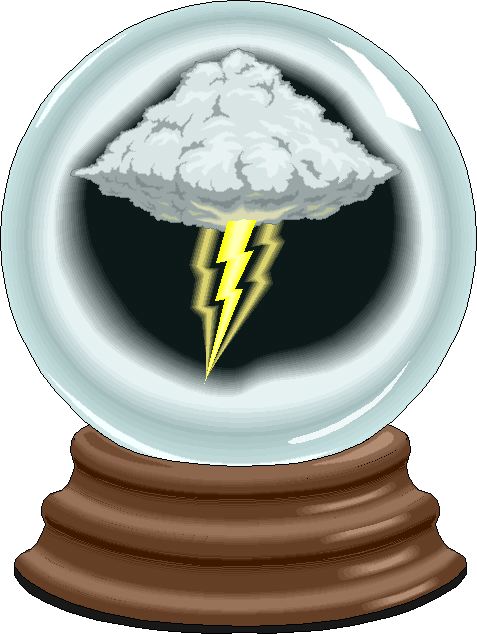Part 3: Air Pressure and the
Barometer

Goals
- Make own barometer
- Understand mercury barometer and how to predict weather
conditions from it.
- Be able to function in group work activities.
Materials
|
mercury barometer
|
thin wooden stick
|
|
flexible plastic bottle with cap
|
pencil
|
|
scissors
|
thread
|
|
marking pen
|
shoe box
|
|
long piece of spaghetti
|
graph paper
|
|
tape
|
paper fastener
|
Time
2 Hours
Procedure
- Discuss air pressure, why it is important to know about air
pressure, and how we measure it.
- Describe who invented the first barometer (Torricelli), why he
invented it, and what purpose it served.
- Discuss the different methods used to measure air pressure and
teach the different conversions.
--example 1atm=760=mmHg (The math concepts might be difficult, a
review of the metric system may be beneficial.)
- Have groups (4-6 students) make their own barometer.Ý
(see handout on procedure)
- Record the measurements of the mercury barometer and the hand
made barometer on a graph. The measurements
should be done three times a day for a week. Make sure each reading
is done at the same time every day. The
measurements taken from the hand made barometer are not going to
be measured the same way as the mercury one.
The class is going to have to come up with a measuring system.
Results should show that higher pressures accompany fair weather
while lower pressures accompany stormy
weather.
- Have a class discussion on how David might have benefited from
a barometer.
Major concepts
- Science - Terminology on weather and barometer
- History - Historical significance of Torricelli
- Math - Measurements and conversions, graphing
Assessment
- Each student will turn in a graph of his/her results.
- Each student will write an answer to why a barometer would be
important at sea forÝsurvival.Ý They will also
incorporate Voyage of the Frog
into their answer:Ý How might have David benefited from a
barometer?
- Each student will determine whether or not his/her group's
barometer does work.Ý Criteria for success:Ý
completion of
assigned work which shows student's understanding of the barometer
and measurements.
See Rubrics for Air Pressure and the
Barometer
Go To Part 4: Coriolis Effect and
General Wind Circulation
Go Back To S.O.S. Understanding the Weather
Conditions on the Seas Page
Submitted By St. Norbert College
Ocean Voyagers Program

